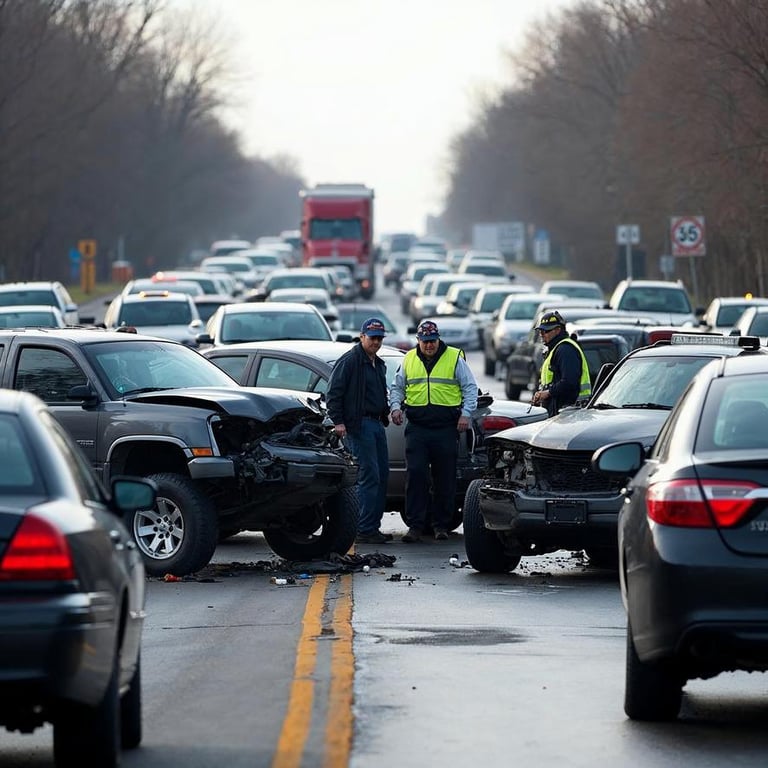
Unfortunately, based on your response, you may not qualify to file a claim. Most personal injury cases must be filed within two years of the accident, in accordance with the statute of limitations. Please consult with a licensed attorney to explore any possible exceptions or additional options.
Multi-car accidents, often referred to as pileups or chain-reaction crashes, involve three or more vehicles and can be complex when it comes to determining liability. In Des Moines, roads can become congested, and the risk of such collisions increases because of traffic, weather conditions, and driver behavior. Understanding how liability is assigned in multi-car accidents is crucial for anyone involved in such incidents.
Liability means responsibility for the accident and the damages caused. In multi-car collisions, determining liability is more complicated than in two-vehicle crashes. It involves identifying which drivers were negligent and how their actions contributed to the accident. Nebraska traffic laws and insurance regulations play a significant role in establishing fault.
Investigators analyze the sequence of collisions among vehicles. Usually, the driver who initiated the crash or failed to maintain a safe distance may be held primarily liable. However, liability can be shared based on each driver’s role.
Violations such as running red lights, speeding, improper lane changes, or failure to yield can contribute to liability. Understanding local traffic rules in Des Moines helps clarify fault.
This includes distracted driving, DUI, reckless behavior, or failing to pay attention. Evidence such as police reports, witness statements, and sometimes surveillance footage can help establish negligence.
The location of impact and the damage on vehicles often provide clues. For example, rear-end collisions often imply the driver at the back may be at fault, though exceptions exist.
Filing claims for multi-car collisions can be complex due to multiple parties and insurance companies involved. The process may also be delayed if there's a dispute over fault. It is advisable to document the accident thoroughly and consult resources about how to file your claim properly to avoid denials or delays.
Check for injuries and call emergency services. Report the accident to Des Moines police to create an official record.
Exchange contact and insurance details with other drivers. Take photos of the accident scene, vehicle damage, road conditions, and any relevant traffic signs or signals.
Even if injuries seem minor, get a medical evaluation. Some injuries may not be immediately apparent.
Maintain a file with medical records, repair estimates, receipts, and correspondence related to the accident. This documentation supports your claim and helps establish liability.
Nebraska follows a comparative negligence rule, meaning each driver's fault is considered and damages can be reduced according to the percentage of fault assigned. This means multiple drivers can share liability in a multi-car accident which can affect compensation outcomes.
Understanding liability fully can be enhanced by looking at detailed guides specific to multi-car collisions like understanding liability in multi-car collisions. It's also useful to learn about common challenges in multi-car accident claims to prepare for a smooth claim process.
For official safety and highway administration information, refer to the National Highway Traffic Safety Administration, which offers statistics and safety tips for various types of collisions including multi-vehicle crashes.
Multi-car accidents in Des Moines require careful consideration to determine liability due to the involvement of multiple drivers and vehicles. Knowing the key factors that affect fault, the steps to take after an accident, and utilizing credible resources can aid victims in navigating the claims process more effectively.
Unfortunately, based on your response, you may not qualify to file a claim. Most personal injury cases must be filed within two years of the accident, in accordance with the statute of limitations. Please consult with a licensed attorney to explore any possible exceptions or additional options.